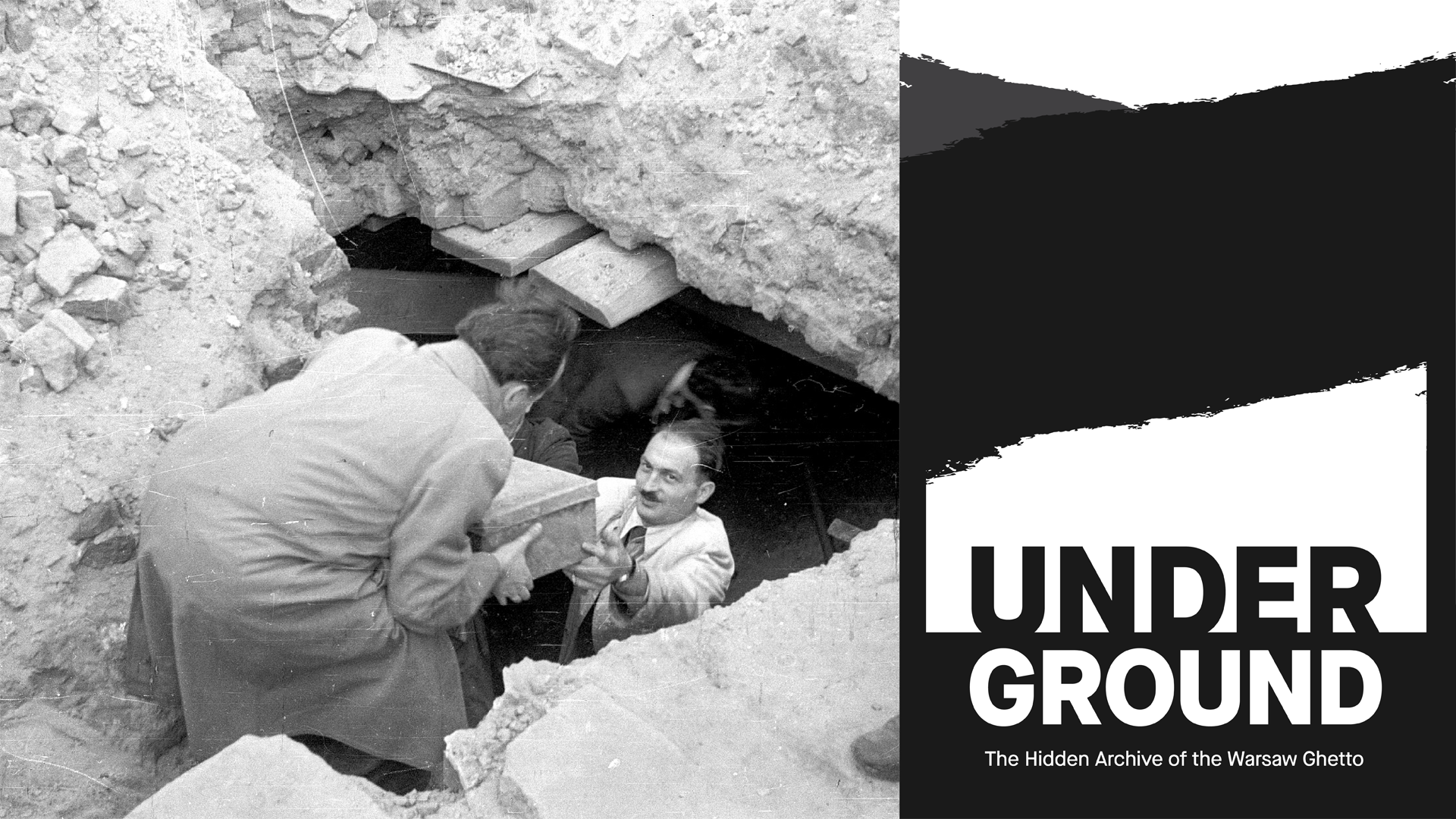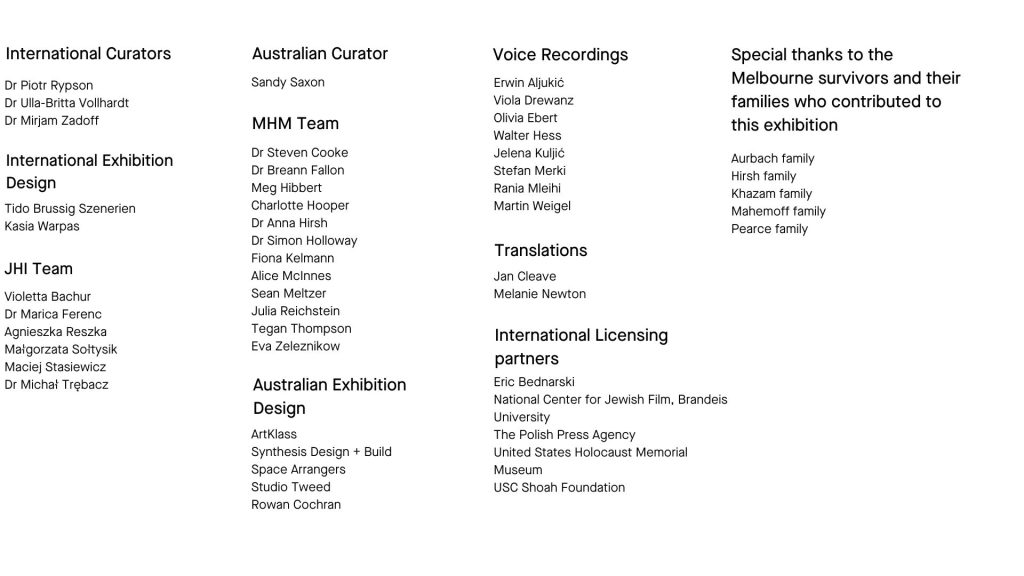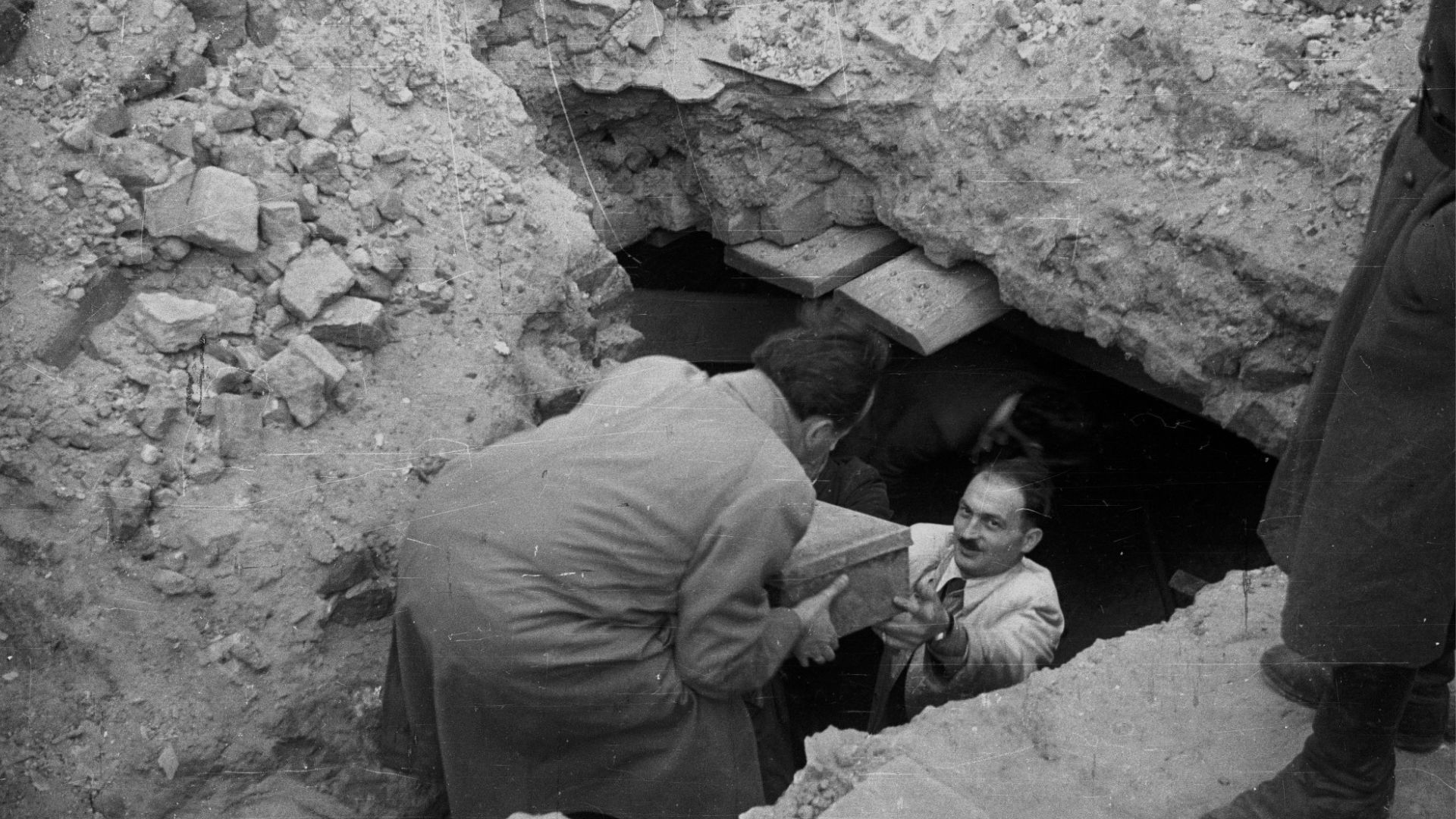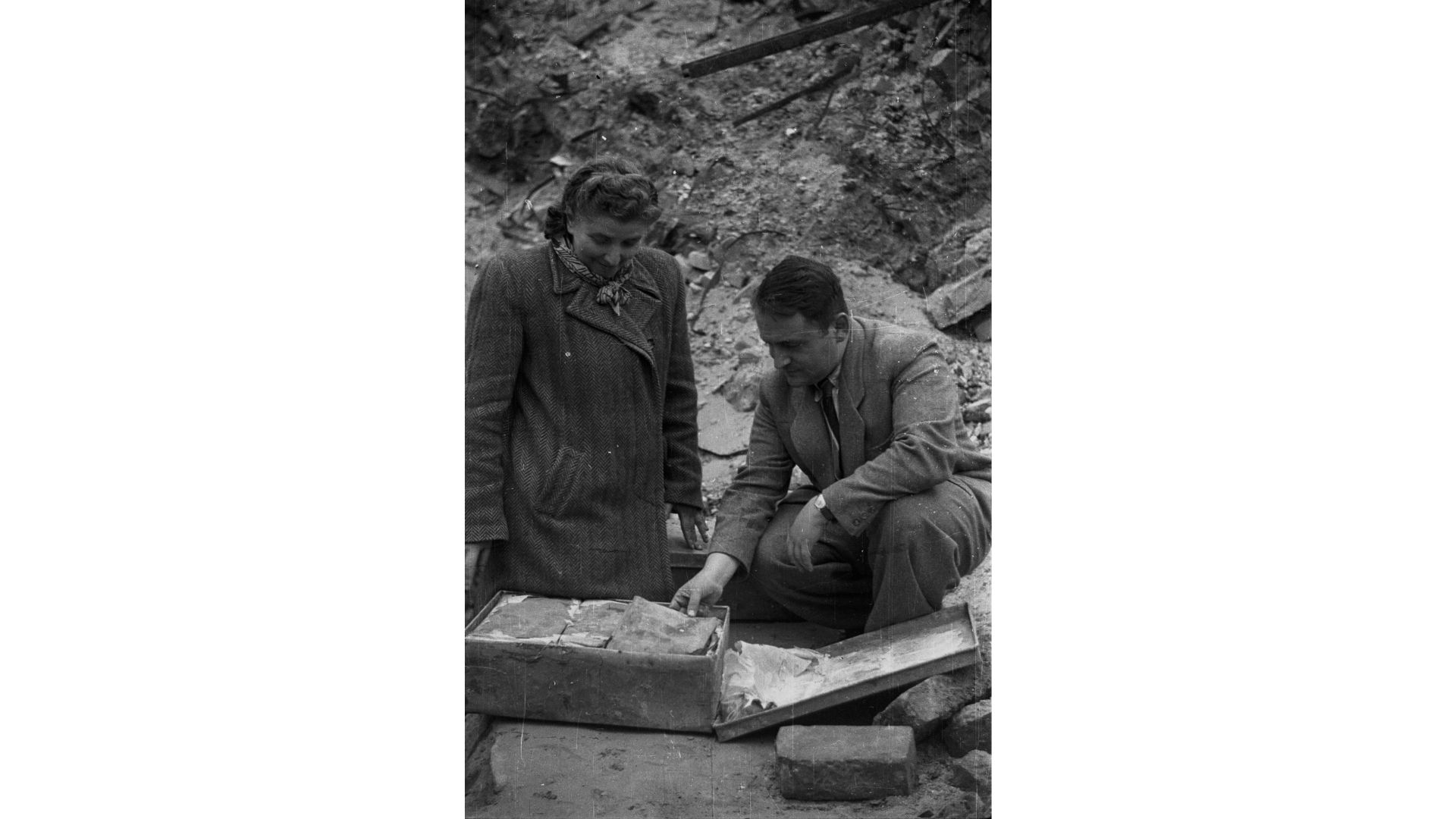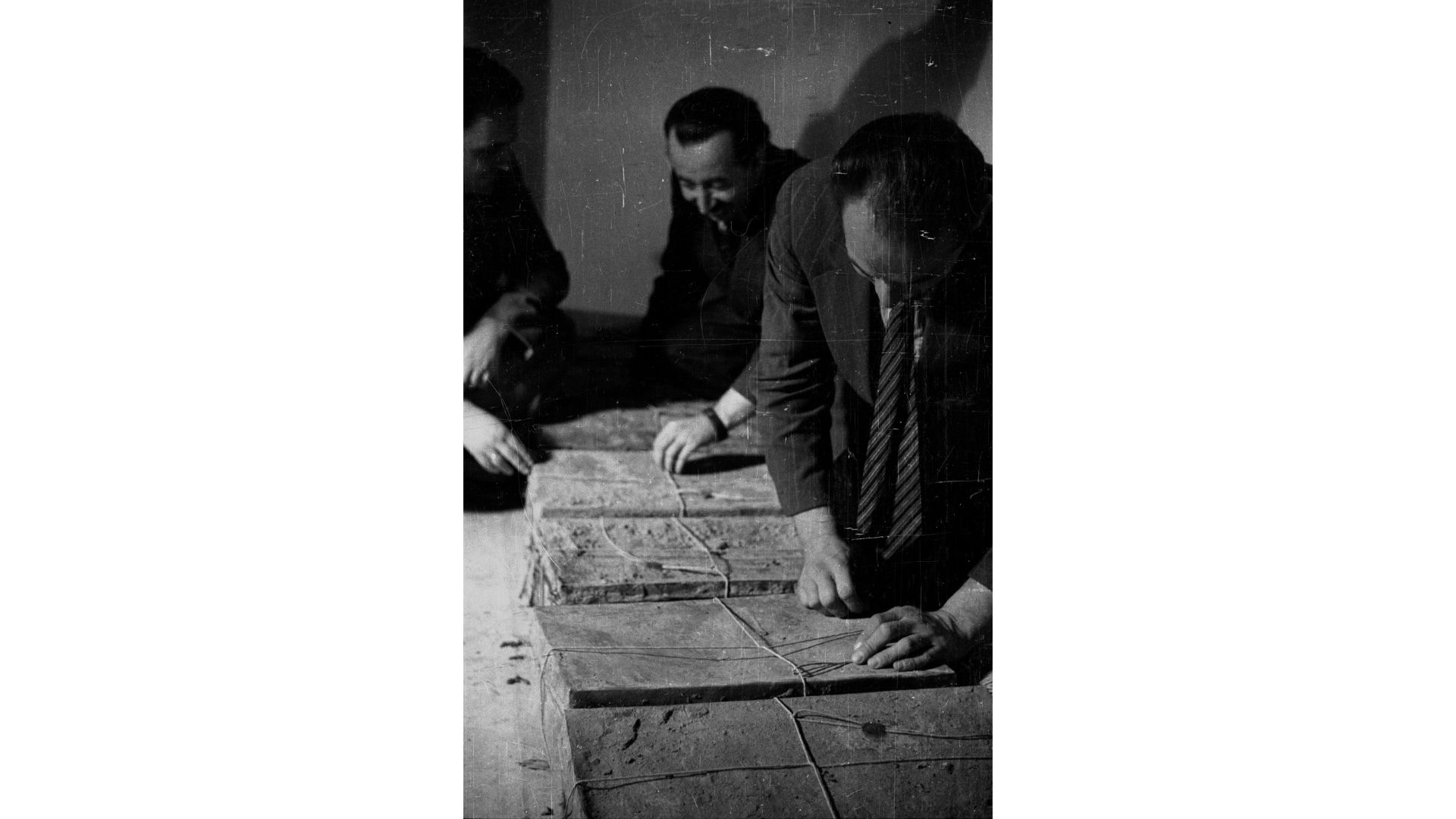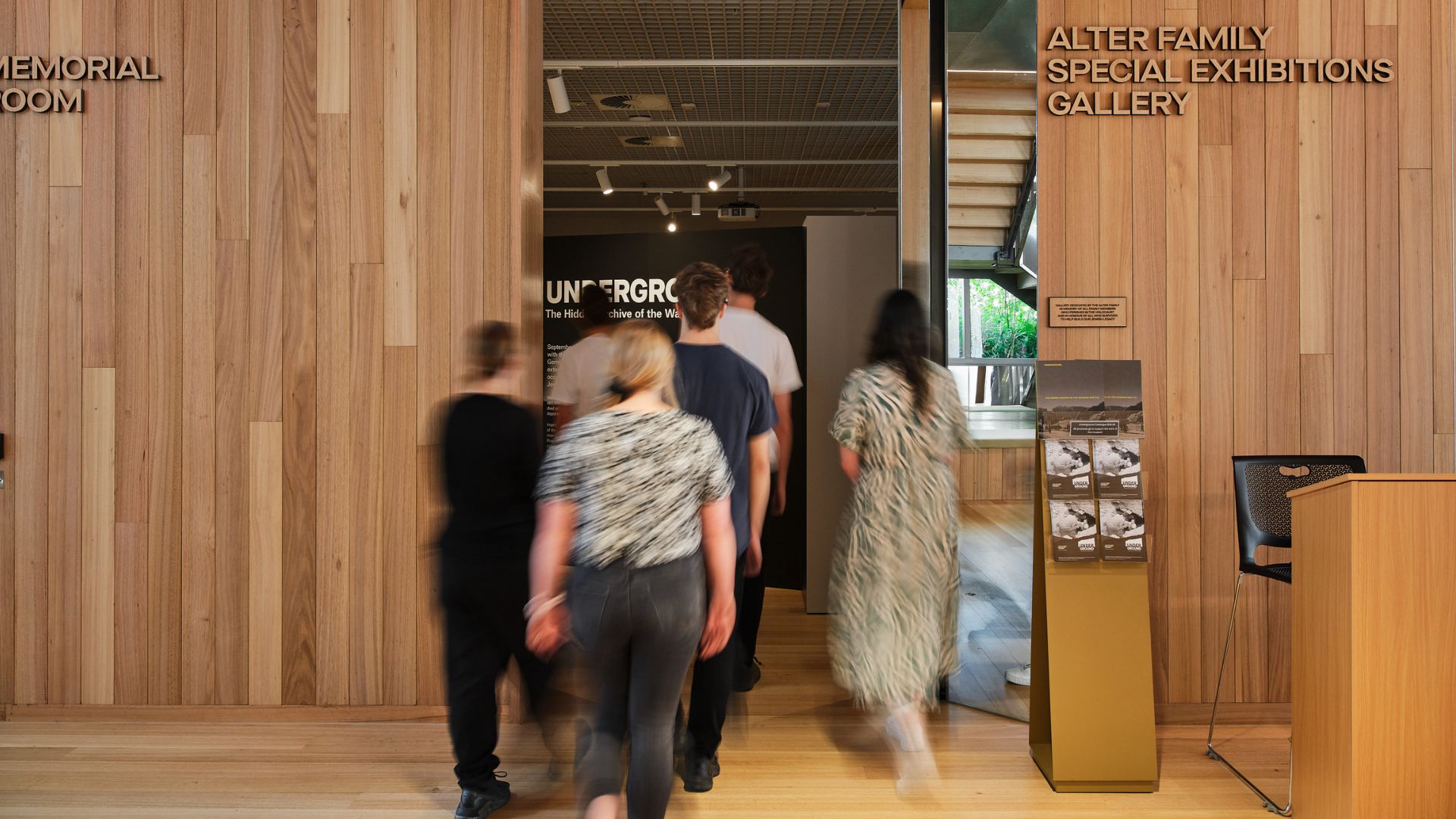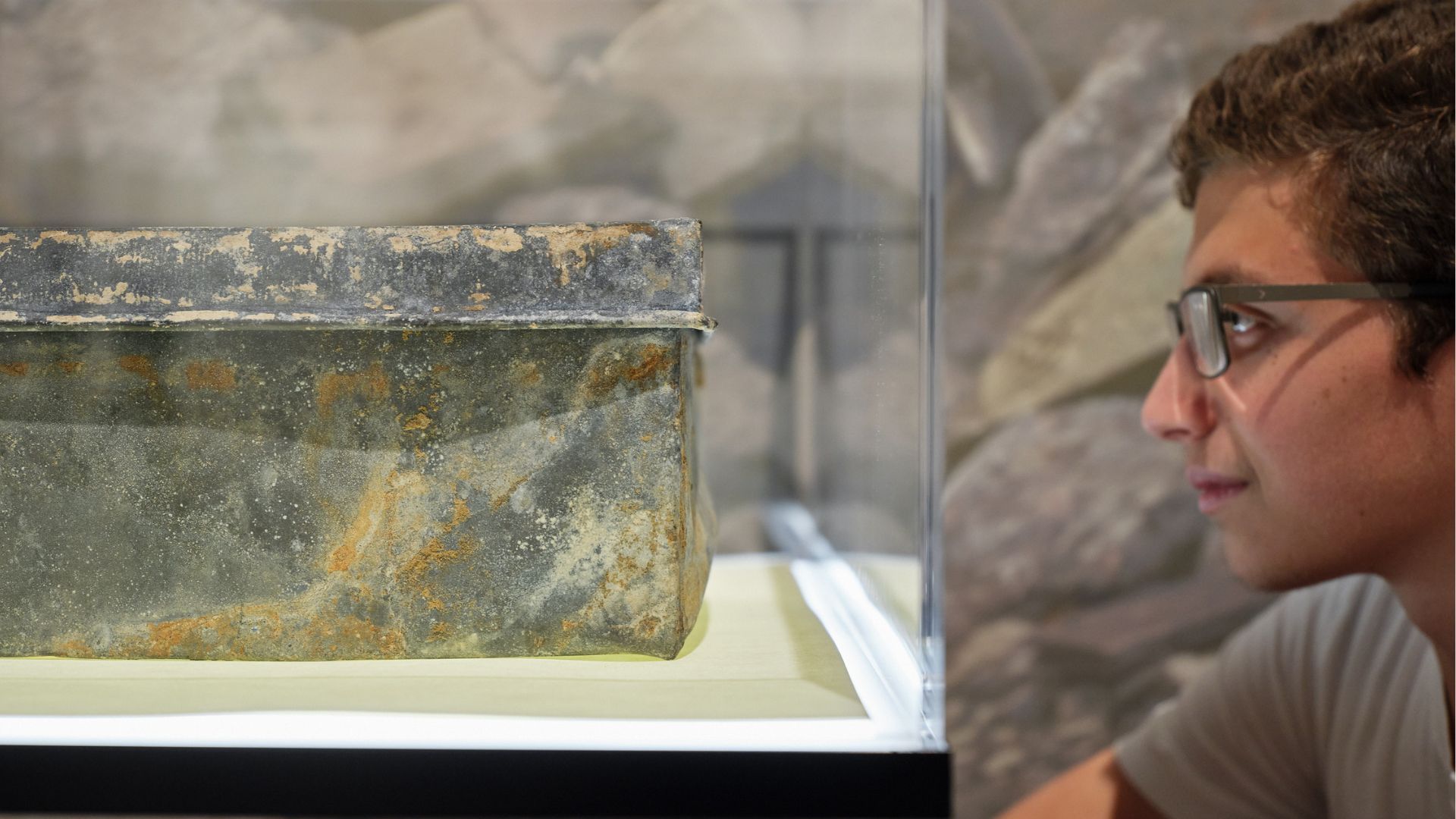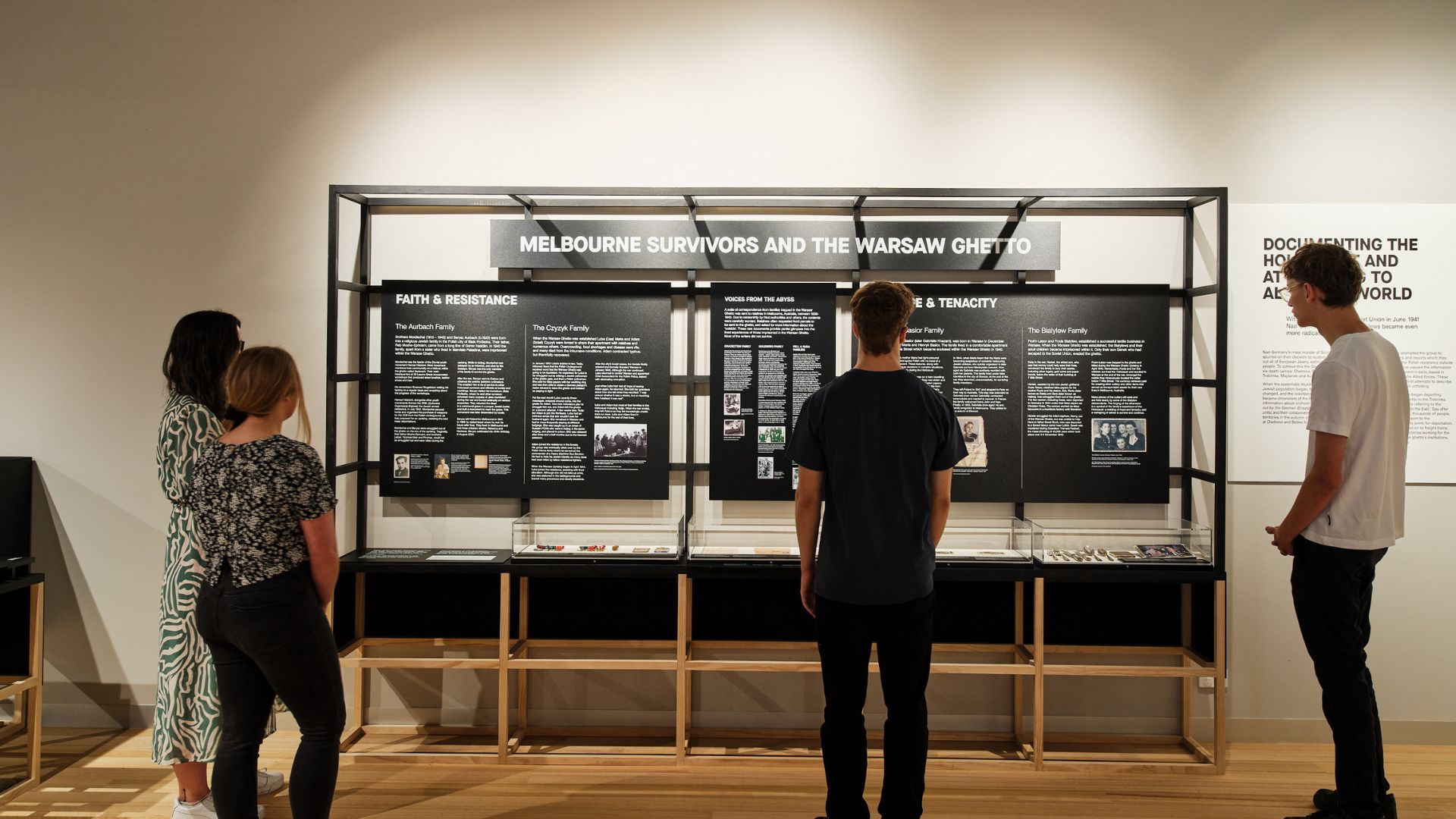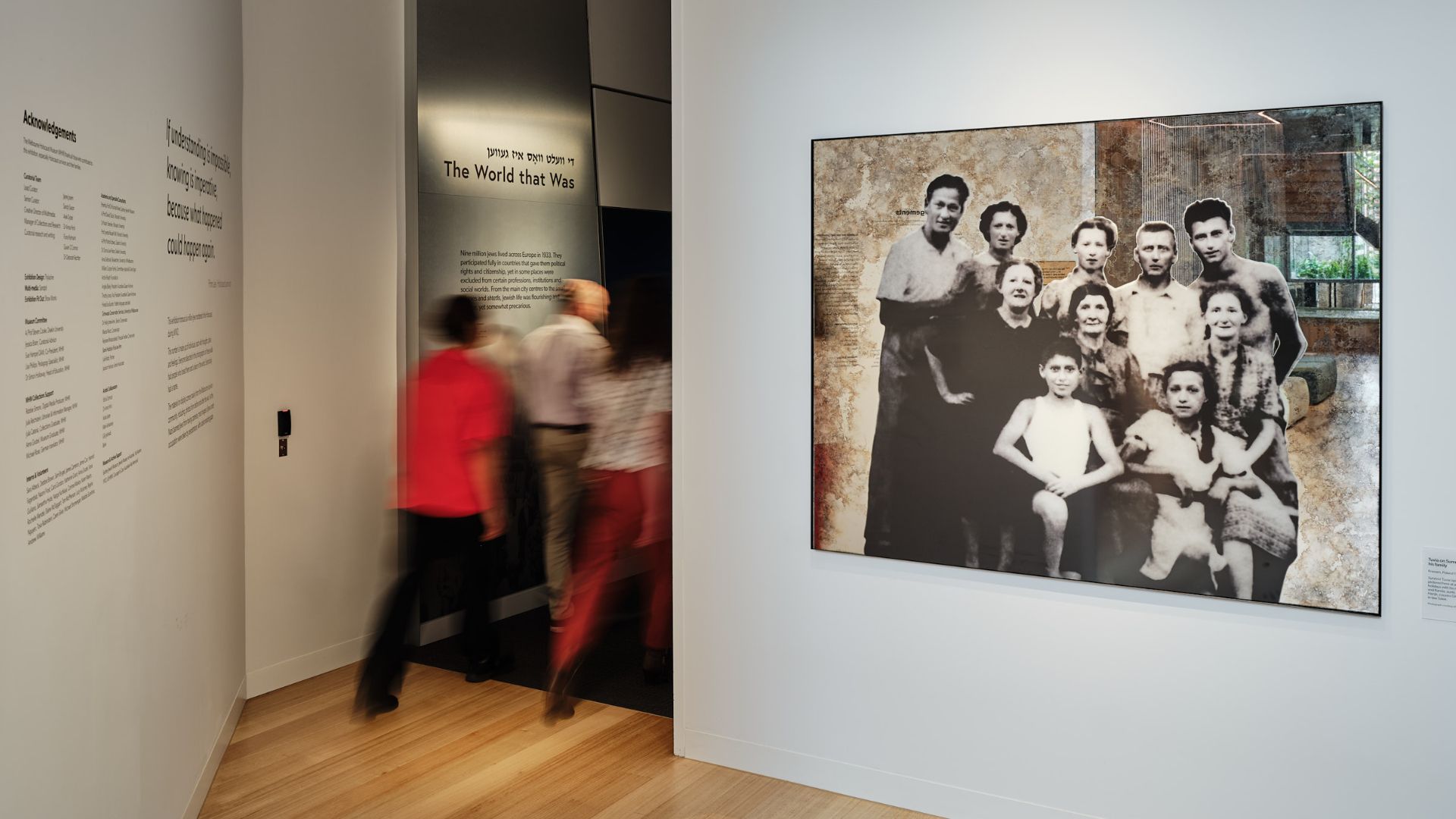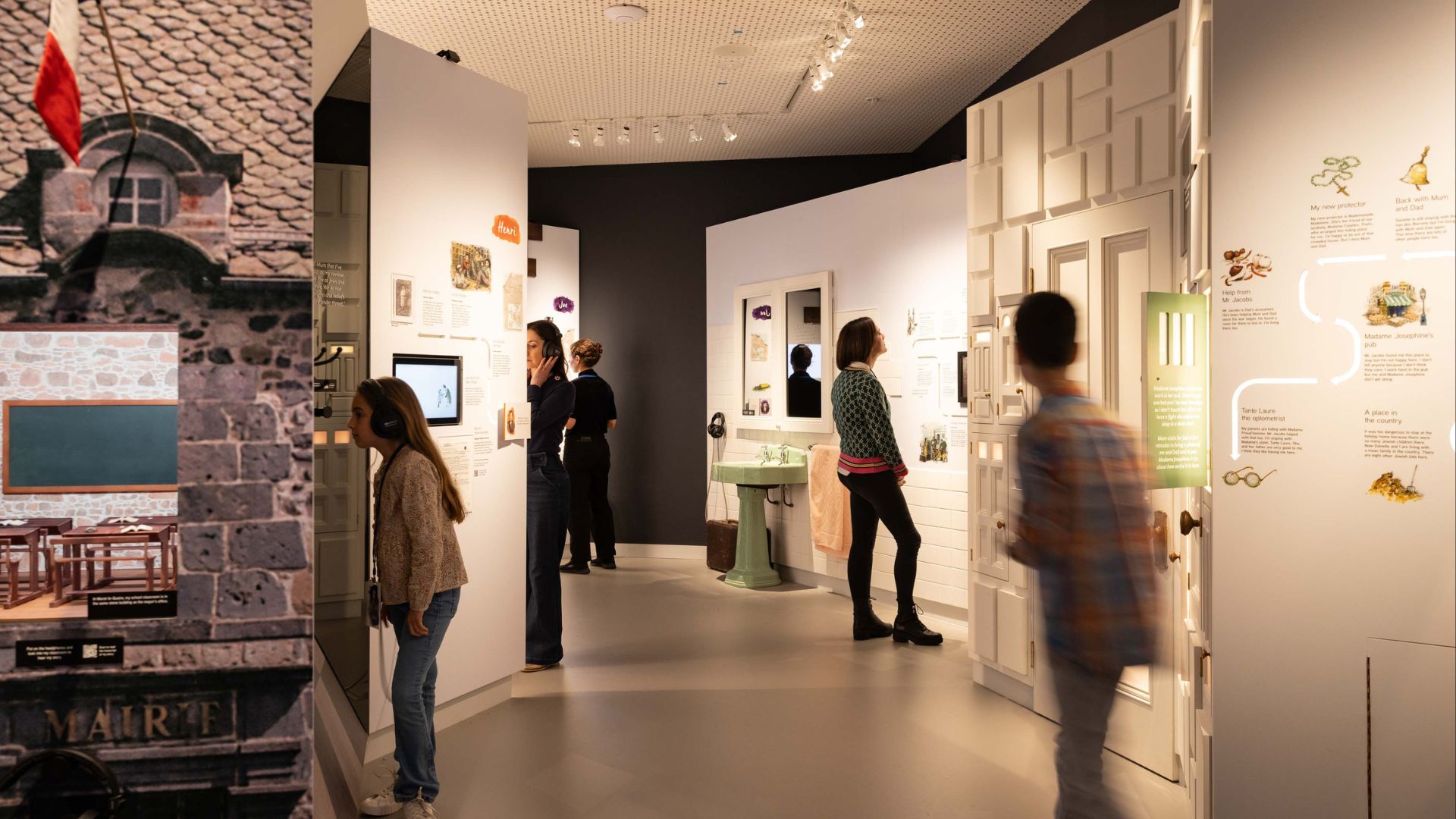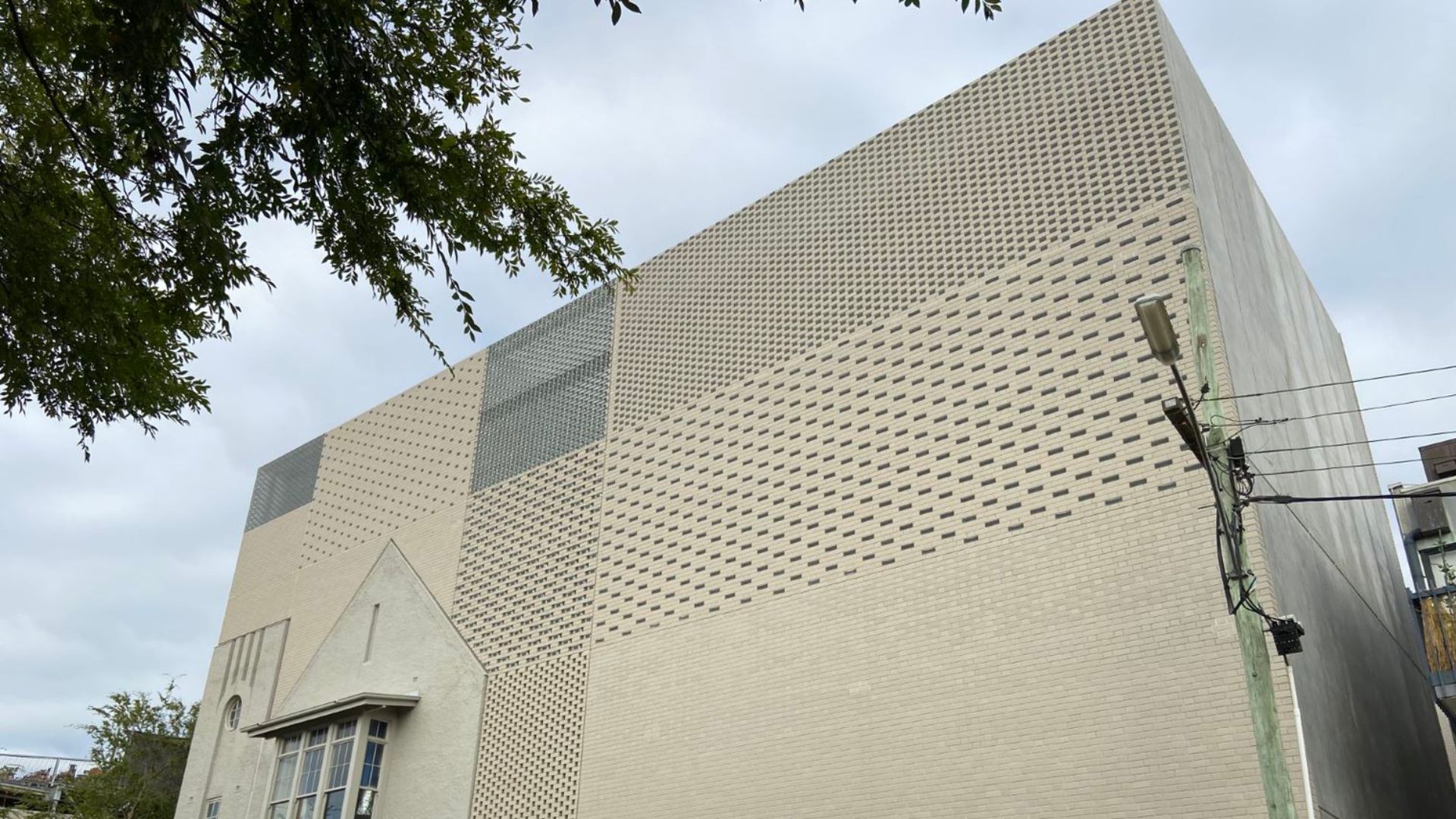On display for the first time outside of Europe, Underground exhibits rare artefacts from the hidden archive of the Warsaw Ghetto. This archive was led by historian Emanuel Ringelblum who initiated an unprecedented campaign to collect material in the ghetto—the collection today known as the Ringelblum Archive. This collective of academics, writers, and activists worked secretly in an attempt to document the mass murder of European Jews as it was happening.
The exhibition tells the story of this act of resistance: a never-ending, arduous, harrowing but ultimately successful attempt to write the story of the Holocaust from the perspective of its victims.
Exhibition Partners
Underground: The Hidden Archive of the Warsaw Ghetto is presented in partnership with the Jewish Historical Institute, Poland, the Association of the Jewish Historical Institute of Poland, and the Munich Documentation Center for the History of National Socialism, Germany.
Exhibition Sponsors
The MHM would like to thank our exhibition sponsors:
Gerry and Lillian Pearce
The Embassy for the Federal Republic of Germany
Programming Sponsors
The MHM would like to thank our programming sponsors:
The Jewish Quarterly
The Australian Centre for Jewish Civilisation, Monash University
Irene Kronhill Pletka
